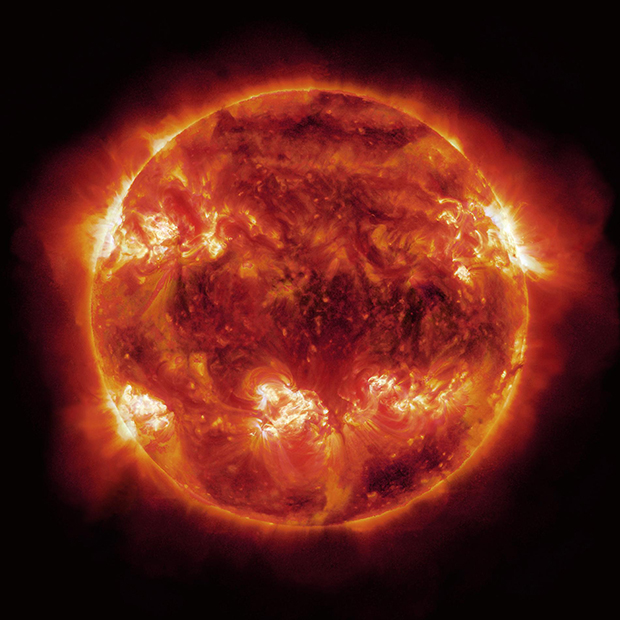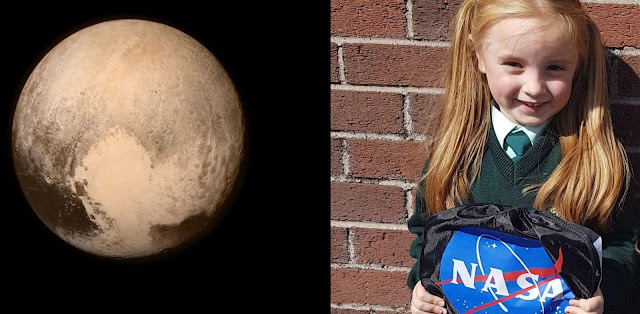When Your Body Is Exposed to the Vacuum of Space, Your Blood 'Boils' And You Inflate Like A Balloon
Imagine this: you are on a space exploration adventure and nothing could be better. Your diet is fantastic, consisting of all the astronauts typically eat and your eyes are the witnesses to beautiful celestial wonders. You look back towards our tiny, blue marble of a planet and you remember that in just a few hours, you are returning from your exotic travels.
Everything is normal, all works, nothing to fear about.
However, so you thought. Right before going back down to Earth, someone accidentally opened the airlock and you found yourself floating in the vacuum of space completely unprotected, and devoid of oxygen. Panic immediately sets in because you know just how horrific it is to be stranded in such a vacuum.
Being in the black void of the heavens just as you are poses a danger like no other that will definitely be the cause of your death. Even if after a few moments you found your way back to safety once more, there is no possible way reverse a substantial amount of damage your body has sustained.
Here is what happens and what it’s like to be stranded within the vast cosmos:
It’s Going to Be Very Cold
It is so cold in space, that your blood boils and you immediately inflate like a balloon. Now, onto the explanation: upon immediate arrival, the first sensation to be noticed are the low temperatures. This is the most common understanding of the interaction of space with the human body, but it is not what causes your death, for there is a large number of variables and conditions that will manage to do the deed much quicker.
Why does the blood boil? It’s the actual vacuum of space that causes the absence of your body heat, which in terms affects your eyes, mouth and lungs because any remaining water vapor will quickly evaporate. This means that the cold you will experience is not the kind that is experienced in winter, but the kind that occurs when the body lacks water, or air to insulate it. This is what causes your freezing.
You Will Get Skin Cancer in a Matter of Seconds
It’s common knowledge that spending a few hours out in the sun without wearing any sunscreen and whatnot, it is very possible that you will develop a sunburn. Why isn’t it much worse? That is because the Earth’s atmosphere protects us from incoming ultraviolet rays, and keeps the radiation to a minimum.
In space, you do not have a trusty atmosphere to shield you from the ultraviolet rays. As a result, your skin will burn at a rate that is unprecedented to what you experienced here on earth, resulting in the development of skin cancer in the matter of seconds due to the massive amounts of radiation.
You Could Go Blind by Even Glimpsing at the Sun
As said before, the atmosphere that protects you from the deadly features of our sun is absent, making the rule “do not stare directly at the sun” ring brighter because if you do... you will go blind.
Here on Earth, in order for solar retinopathy to set in, you would need to stare directly at the sun for approximately 1.5 minutes. Now, since our atmosphere is absent, that time span shortens dramatically.
You Inflate
Let’s summarize all that has happened thus far: you are freezing, your skin is burnt to the crisp, you’re most likely blind at this point, and you continue to fly through the cosmos. Be grateful for this while you still can, because it is about to worsen.
Welcome your new health condition: ebullism. Ebullism is defined by the formation of gaseous bubbles forming in your bodily liquids due to reduced environmental pressure. Why does this happen in the vacuum of space? It’s simple. Everyone’s blood contains the element nitrogen. As a result of the vacuum in space, nitrogen begins to dissolve, forming bubbles as a result and lots of them.
This causes blood vessels to expand and in term the expansion of your entire body. You now look like a balloon as well.
Enjoy your last few moments.






Comments
Post a Comment